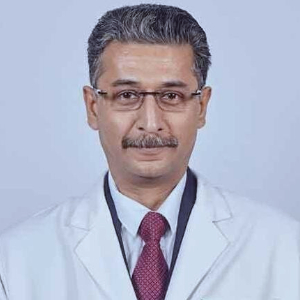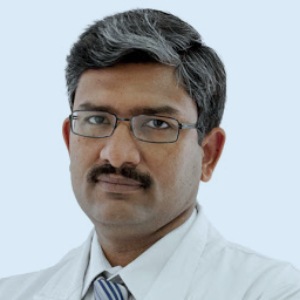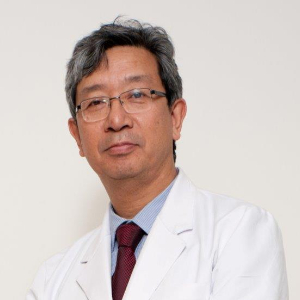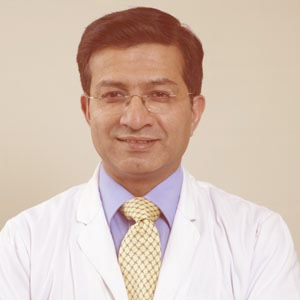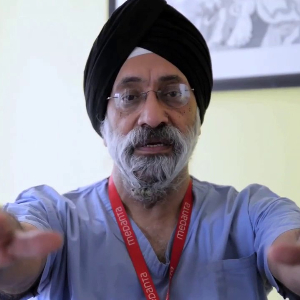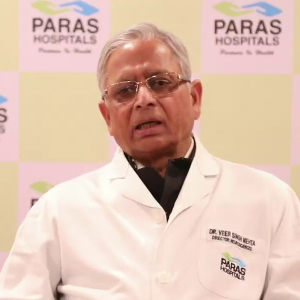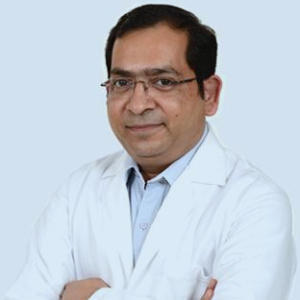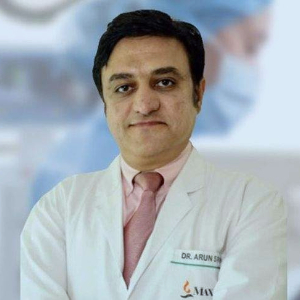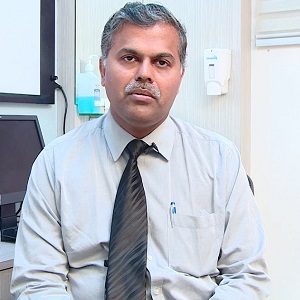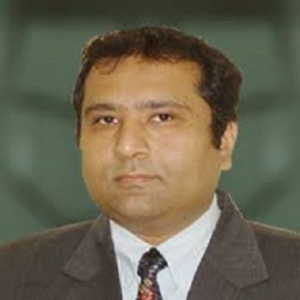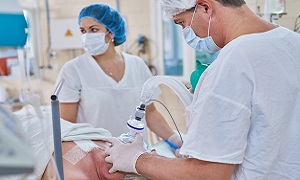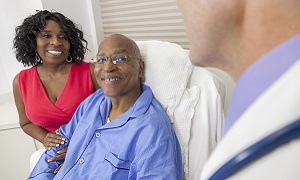Best VP Shunt Doctors in India
- Neurosurgeon, Gurugram, India
- Over 22 years’ experience
- Fortis Memorial Research Institute
Profile Highlights:
- Dr. Sandeep Vaishya is a renowned Neurosurgeon in India, with over 22 years of proficient experience in the field of advanced neurosurgery.
- He has closely worked with some of the top-notch institutes and hospitals in India.
- Dr. Vaishya is regarded as one of the top surgeons of Gamma Knife Surgery in South Africa and is also considered a renowned surgeon for brachial plexus injuries.
- Additionally, Dr. Vaishya specializes in minimally invasive and image-guided neurosurgery, intracranial tumor surgery (including skull base tumors), functional neurosurgery, spinal surgery, and brachial plexus & peripheral nerve surgery.
- Top Neurosurgeon | Artemis Hospital | Gurugram, India
- 25+ years experience
- Artemis Hospital, Gurgaon
Profile Highlights:
- Dr. Aditya Gupta is one of the top Neurosurgeons in India functioning as the Chairperson of the Department of Neurosurgery & CNS Radiosurgery and Co-Chief of Cyberknife Centre at the Artemis Hospitals in Gurugram, India.
- He is renowned for pioneering advanced surgical techniques in treating various brain tumors, specializing in microsurgery and radiosurgery. His expertise extends to managing Movement Disorders with Deep Brain Stimulation (DBS), epilepsy surgery, nerve and brachial plexus surgeries, as well as treating brain aneurysms and AVMs. He is also highly skilled in spine surgery, having performed a wide range of procedures.
- Dr. Gupta graduated as a topper from All India Institute of Medical Sciences, New Delhi. He later served as Faculty and Associate Professor of Neurosurgery until 2009.
- Top Neurosurgeon | Fortis Memorial Research Institute | Gurugram, India
- 32+ years’ experience
- Fortis Memorial Research Institute
Profile Highlights:
- Dr. Rana Patir is one of the most experienced and highly qualified Neurosurgeons in India.
- He holds an extensive experience of 32+ years as a neurosurgeon and has performed more than 10,000 neurosurgical procedures till date.
- Dr. Patir is an expert in all kinds of neuro and spine surgeries with a specialization in minimally invasive brain and spine surgery, Epilepsy surgery, pediatric neurosurgery, and neurovascular surgery.
- Top Neurosurgeon | Max Hospital, Saket, New Delhi, India
- 20+ Years Experience
- Max Super Specialty Hospital, Saket, New Delhi
Profile Highlights:
- Dr. Bipin Walia is one of the most famous neurosurgeons who has performed over 7000 successful neurosurgeries so far.
- Dr. Bipin Walia specializes in image-guided surgery, disc replacement, and endoscopic disc surgery, including endoscopic cranial surgery. His expertise also includes brain tumor surgery and a special focus on minimally invasive surgery for spinal tumors.
- He earned his MBBS and MS (General Surgery) degree from Armed Forces Medical College, Pune, followed by which his, M.Ch(Neurosurgery) from All India Institute of Medical Sciences, New Delhi.
- Dr. Bipin Walia has over 20 years of experience with his outstanding performance earning him quite some rewards and recognition.
- Top Neurosurgeon | Medanta_ The Gurugram | India
- 30+ years’ experience
- Medanta-The Medicity, Gurgaon
Profile Highlights:
- Dr. V P Singh is a renowned Neurosurgeon with over 30 years of veteran experience. His competence in cranial, spinal, and peripheral nerves has helped him successfully perform 400+ Intracranial Aneurysm surgical procedures.
- Dr. Singh has also been credited for initiating the Gamma Knife Unit and epilepsy surgery program at All India Institute of Medical Sciences, New Delhi.
- He is proactively involved in the treatment of arteriovenous malformations by radiosurgery techniques and is currently the chairman of the Institute of Neurosciences, Medanta.
- Neurosurgeon, Gurugram, India
- Over 38 years’ experience
- Paras Hospital Gurugram
Profile Highlights:
- Dr. (Prof.) V S Mehta is a leading Neurosurgeon in India and is considered among the best neurosurgeons in the world.
- He holds an experience of over 38 years in the field and is an expert in Brachial Plexus Surgery, Brain Stem Surgery, Brain Tumour
- He has been honored with the Padma Shri for his dedication and contributions to neurosurgery and spine surgery in India.
- In Paras Dr. V S Mehta has been part of the team to first use the Image-Guided Brain Tumor Navigation Technology for Brain tumor surgery in India.
- Top Neurosurgeon & Spine Surgeon | BLK Hospital, New Delhi, India
- 29+ Years Experience
- BLK Super Specialty Hospital, New Delhi
Profile Highlights:
- Dr. Anil Kumar Kansal is a highly respected and accomplished neurosurgeon with over 29 years of extensive experience in the field of neurosurgery, spine surgery, and robotic surgery.
- He currently serves as the Principal Director and Head of the Department at Max Healthcare, where he leads the Neurosciences division with a focus on delivering cutting-edge care to patients with complex neurological conditions.
- He earned his MCh in Neuro Surgery from King George’s Medical College, Lucknow University, in 2001, following an MS in General Surgery from the same prestigious institution in 1997.
- Top Neurosurgeon | Max Hospital, Saket, New Delhi | India
- 20+ Years Experience
- Max Super Specialty Hospital, Saket, New Delhi
Profile Highlights:
- Dr. Arun Saroha is a renowned Neurosurgeon with extensive experience in the surgical treatment of all kinds of brain and spine disorders.
- He holds an experience of over 20 years in the field and has performed over 8000 neurosurgeries till date for different types of neuro and spinal diseases.
- Dr. Saroha is an expert in minimally invasive spine surgery, neuro-onco surgery, trauma surgery and is also among the few neurosurgeons with expertise in Pediatric neurosurgery.
- His interest lies in brain and spine disorders like degenerative spine disorder, brain tumors, disc replacements, pediatric neurosurgery surgery for stroke, brain and spine tumor surgery, brain aneurysms, spinal fusion, and decompression surgery.
- Top Neurosurgeon | Apollo Hospitals Greams Road, Chennai | India
- 25+ years experience
- Apollo Hospitals Greams Road
Profile Highlights:
- Dr. M. Balamurugan is a well-known neurosurgeon in India with 25 years of experience.
- Presently, he practices at Apollo Hospital, Greams Road, Apollo Specialty Cancer Hospital, and Apollo Children’s Hospital, Chennai.
- Owing to his experience, Dr. Balamurugan assists in managing craniosynostosis, epilepsy, extradural hematoma, lumbar disc, lumbar spinal stenosis, metachromatic leukodystrophy, multiple sclerosis, peripheral neuropathy, scoliosis, seizures, trigeminal neuralgia, etc. He has expertise in managing brain tumors as well. Patients can consult him for Pediatric Neurosurgery.
- Neurosurgeon, Gurugram, India
- 20 + years’ experience
- Medanta-The Medicity, Gurgaon
Profile Highlights:
- Dr. Sudhir Dubey is a distinguished neurosurgeon with an illustrious career spanning decades, marked by groundbreaking contributions to the field of neurosurgery.
- As the Chairman of Neurosurgery at Medanta, Gurugram, Dr. Dubey has performed over 10,000 neurosurgical operations, solidifying his reputation as one of the foremost experts in the field.
- Dr. Dubey’s academic journey is as impressive as his clinical achievements. He graduated with top honors from King George’s Medical College, where he was awarded the prestigious Sir Rupkishan Das Gold Medal in his final year of MBBS.
Best VP Shunting Hospitals in India
- City: Gurugram, India
Hospital Highlights:
- One of India’s best and largest multi-specialty hospitals, Medanta was built with the aim to bring India to the highest standards of medical care. The hospital has been providing the best medical services to its patients, since its inception, with care, commitment, and compassion.
- Equipped with 1250 beds, the hospital was founded by Dr. Naresh Trehan in the year 2009 with an aim to provide the best medical care at affordable costs. The hospital is spread across 43 acres and includes 45 operation theatres and 350 beds dedicated solely to ICU. The hospital includes over 800 doctors, and more than 22 specialty departments and has a dedicated floor for individual specialty in order to offer the best services under one roof.
- The hospital is considered one of the premier institutes in India for Cardiac Care and includes staffs and members of high caliber. The hospital has 6 distinct centers of excellence.
- City: Gurugram, India
Hospital Highlights:
- Artemis Hospital, established in 2007 in Gurugram, India, is a leading multi-specialty institution known for its excellence in patient care and advanced medical technology, offering comprehensive services across specialties like Cardiology, Oncology, Neurology, Orthopedics etc.
- Renowned for its patient-focused care, Artemis Hospital combines state-of-the-art infrastructure with a team of internationally trained doctors and surgeons, ensuring the highest standards of medical treatment.
- Accredited by JCI and NABH, Artemis Hospital meets global healthcare quality and safety standards, reflecting its commitment to providing compassionate, personalized care.
- The hospital is recognized for utilizing cutting-edge diagnostic and ther*peutic techniques, ensuring patients receive accurate diagnoses and effective treatments tailored to their needs.
- City: Chennai, India
Hospital Highlights:
- The Apollo Proton Cancer Centre in Chennai is the most sought-after private cancer hospital in India. It is an integrated facility that provides cutting-edge, all inclusive cancer treatment to patients all over the globe.
- The hospital is a part of the renowned Apollo Group which has a large network of over 74 hospitals in India and across the globe. Out of the 74 hospitals, 21 of them are cancer centres. However, Apollo Proton Cancer Centre is the only cancer hospital to have JCI accreditation.
- The Centre, which was established on the principles of excellence and expertise, unites a formidable medical staff led by some of the most illustrious figures in cancer treatment.
- The hospital follows the global ASTRO Model Policy. It is the same global policy which is followed by countries like USA, UK, and Europe.
- Apollo Proton Cancer Centre is among the very few hospitals in India to receive patients from First World countries such as USA, Canada, New Zealand, Australia, Singapore, Thailand, etc.
- Apart from that, it is also the first hospital in Chennai to receive patients from several countries like Uzbekistan, Kazakhstan, Turkmenistan, Georgia, Armenia, Azerbaijan, SAARC countries (Bangladesh, Nepal, Sri Lanka, Maldives, Bhutan, Afghanistan, and Pakistan), South Africa, Turkey, Egypt, etc.
- In fact, there is a dedicated team at the Apollo Proton Cancer Centre that serves only international patients. Thus, on a monthly basis, the Centre receives patients from across 32 countries.
- Moreover, there are certain treatments in Apollo Proton Cancer Centre that are not available in any other centre. APCC addresses all types of possible cancers that are usually not covered by any other centre.
- City: New Delhi, India
Hospital Highlights:
- Over the last 33 years, the Fortis Escorts Heart Institute has set new standards in cardiac treatment with groundbreaking research. It is now known around the world as a centre of expertise for Cardiac Bypass Surgery, Interventional Cardiology, Non-invasive Cardiology, Paediatric Cardiology, and Paediatric Cardiac Surgery.
- The hospital has cutting-edge laboratories that perform a wide range of diagnostic tests in Nuclear Medicine, Radiology, Biochemistry, Haematology, Transfusion Medicine, and Microbiology.
- Fortis Escorts Heart Institute boasts a diverse group of bright and experienced doctors who are backed up by a team of highly qualified, experienced, and devoted support professionals as well as cutting-edge equipment such as the recently installed Dual CT Scan.
- Approximately 200 cardiac doctors and 1600 personnel currently collaborate to manage over 14,500 admissions and 7,200 emergency situations each year. The hospital now has a 310-bed infrastructure, as well as five cath labs and a slew of other world-class amenities.
- City: Gurugram, India
Hospital Highlights:
- Fortis Memorial Research Institute (FMRI) is a premier multi-super-specialty, quaternary care hospital, known for its exceptional international faculty, top-tier clinicians, super-sub-specialists, and specialized nurses, all supported by cutting-edge technology.
- It is the flaship hospital of Fortis Healthcare Limited, part of IHH Healthcare Berhad, a leading integrated healthcare services provider in India. As one of the country’s largest healthcare organizations, Fortis operates 28 healthcare facilities with over 4,500 operational beds (including O&M facilities) and more than 400 diagnostic centers (including joint ventures).
- Recognized as one of the top hospitals in India, FMRI serves as a leading referral center and aspires to be the ‘Mecca of Healthcare’ for India and beyond. Its 11-acre campus is a testament to its commitment to providing world-class healthcare.
- Accredited by JCI and NABH, FMRI is dedicated to maintaining the highest standards of healthcare quality and safety, ensuring that every patient receives the best possible care. The hospital’s reputation is further enhanced by its state-of-the-art facilities and innovative medical practices.
- City: New Delhi, India
Hospital Highlights:
- The Indian Spinal Injuries Center (ISIC), provides state-of-the-art facilities for the management of all types of spinal ailments.
- Staffed with internationally trained, acclaimed, and dedicated spine surgeons, the hospital provides cutting-edge medical & surgical technology. The hospital provides comprehensive management of spinal injury, back pain, spinal deformities, tumors, osteoporosis, etc.
- The hospital performs motion-preserving spine surgeries including disc replacement and dynamic fixation, and minimally invasive spine surgeries such as endoscopic disc excision.
- The orthopedic service of the hospital covers all orthopedic ailments including trauma, joint diseases & replacements, oncology, pediatric orthopedics & upper limb ailment.
- City: Faridabad
Hospital Highlights:
In the sprawling city of Faridabad, where healthcare needs are diverse and ever-evolving, one institution has consistently stood out as a beacon of excellence in the field of medicine—Marengo Asia Hospital. Established with a vision to provide world-class healthcare services to the community it serves, Marengo Asia Hospital has emerged as a trusted name synonymous with quality, compassion, and innovation in healthcare.
- City: New Delhi, India
Hospital Highlights:
- Indraprastha Apollo Hospital is a 700-bedded multispecialty hospital in the heart of the capital of India. It is a part of Apollo Hospital group, one of India’s most reputed healthcare chains. Indraprastha Apollo Hospital has been accredited by Joint Commission International, making it the first internationally accredited hospital in the country in 2005.
- There are 52 specialties in the hospital with one of the best cardiology centers in the country. The hospital is also equipped with State of the art infrastructure facilities with the largest Sleep Lab in Asia and the largest number of ICU bed facilities in India.
- The latest and highly advanced technologies that are installed in the hospital include Da Vinci Robotic Surgery System, PET-MR, PET-CT, Cobalt-based HDR, Brain Lab Navigation System, Tilting MRI, Portable CT scanner, 3 Tesla MRI, 128 Slice CT scanner, DSA Lab, Endosonography, Hyperbaric Chamber and Fibro scan.
- City: New Delhi, India
Hospital Highlights:
- One of the well-regarded providers in India committed to the highest standards of clinical excellence and patient care, Max Super Specialty Hospital is a part of Max Healthcare, which is the second-largest healthcare chain in India. Regarded as one of the most well-regarded healthcare providers in the country, Max Super Specialty Hospital is committed to the highest standards of clinical excellence as well as patient care. The hospital is also equipped with the latest technology as well as cutting-edge research. The hospital is known to deliver and ensure the highest level of patient care.
- The hospital has more than 500 beds and offers treatment for over 35 specialties. The hospital also holds the credit of having installed the first Brain Suite in Asia. This is a highly advanced Neurosurgical machine that allows MRI to be taken while surgery is ongoing.
- Other advanced and latest technologies are also installed in the hospital such as the 1.5 Tesla MRI machine, 64 Slice CT Angiography, 4D ECHO, LINAC, and 3.5T MRI machine.
- City: Kolkata, India
Hospital Highlights:
- Founded in 2017, the HCG EKO Cancer Centre is a committed, all-inclusive cancer care facility in Kolkata.
- The hospital was collaboratively established by India’s leading cancer care provider HCG (HealthCare Global Enterprises Ltd.), and EKO Diagnostic Pvt. Ltd., a top diagnostic and imaging chain in Eastern India.
- With 88 beds, the hospital provides a full spectrum of services including diagnosis, prevention, screening, second opinions, treatment, rehabilitation, follow-up, and palliative care.
- Additionally, the hospital contains a day-care chemotherapy ward, Neutropenic ward, medical ICU, pharmacy, blood bank, and an IPD wing.
- At HCG EKO Cancer Centre Kolkata, a large team of cancer experts with experience in medical oncology, surgical oncology, radiation oncology, hemato oncology, BMT, and nuclear medicine collaborate to offer a variety of treatment options under one roof.
- Furthermore, the hospital is also known for employing the most advanced radiation technology such as, the Radixact, a next-generation TomoTherapy equipment that provides greater radiation delivery precision.
VP Shunt
VP shunt or ventriculoperitoneal shunt is a medical device which doctors use for treating hydrocephalus, a brain condition. The device can relieve pressure on the brain caused by fluid accumulation.
Hydrocephalus occurs when excess cerebrospinal fluid collects in the ventricles of your brain. This fluid cushions the brain and protects it from any skull injury inside. The fluid also acts as a delivery system for nutrients required by your brain and it also helps in taking away any waste product. Normally, this fluid flows through these ventricles to the base of your brain. After this, the fluid bathes the brain and spinal cord before it is reabsorbed into the blood.
When this normal flow gets disrupted, harmful pressure is created on the tissues of your brain, due to the buildup of excess fluid. This can lead to brain damage. VP shunts are therefore used by doctors, which they place inside of the brain’s ventricles to divert the fluid away from the brain so that normal flow can be restored.
Purpose
People of any age might develop hydrocephalus, due to which they might require a VP shunt. However, it is known to occur more in babies than adults. Hydrocephalus, which occurs when excess fluid builds up around the brain, occur due to several reasons such as overproduction of cerebrospinal fluid, poor absorption of cerebrospinal fluid by the blood vessels and any blockage preventing fluid from flowing throughout the brain. Blockages are usually the most common cause of hydrocephalus.
Preparation
Before the procedure, your doctor might recommend the following:
- Stopping consuming alcohol, as this might affect surgery and recovery
- Avoiding any herbal remedies or supplements
- Stopping taking vitamin E, as it may lead to bleeding
- Discussing any existing medication, as you might need to stop taking some before your surgery
- Discussing any heart devices and results of any tests for heart conditions
- Discuss if you have any allergies
- Stop smoking
On the night before your surgery, it is recommended that you don’t consume any food after midnight.
Procedure
Before the procedure to fit the VP shunt, you will receive a general anesthetic and therefore you will be unconscious during the procedure. Once you are fully asleep, a small hole in your skull will be drilled through an incision behind the ear.
They will thread one catheter into your brain through this opening. The other one will go behind your ear and is subcutaneous, which means it resides under the skin.
This tube then travels down to the chest and abdomen, allowing any excess cerebrospinal fluid to drain into the abdominal cavity, where it is absorbed by the body. Your surgeon might then attach a tiny pump to both the catheters. This may be then placed under the skin behind the ear.
When the pressure in the skull increases, this pump will automatically activate to remove any fluid. It also may even be possible to program the pump also called a valve, to activate when there is a certain volume of increase in the fluid.
Aftercare
You might experience a mild headache after the surgery. In such a case, the doctor will give pain medications.
Eating normally straight after the surgery might not be possible. A patient might need to start with liquids and eventually move to solid foods slowly.
During your follow-up visit, your doctor will be removing your stitches. In the meantime, it is important to keep the stitches clean and also check for any signs of infection every day.
The doctor will remove a person’s stitches during a follow-up visit. In the meantime, it is important to keep the incisions clean and also check for any sign of infection. Redness, swelling and fluid leakage might be signs of an infection.
It is important to consult with your doctor before you are able to start showering again. The doctor will also advise you when you will be able to resume your normal daily routine.
Results
For most people, a VP Shunt is able to successfully reduce any pressure in their brains. It takes several years before they require any replacement. For small children, the average lifespan of a shunt is two years. Adults and children over the age of 2 usually do not need a replacement for 8 or more years. However, the shunt systems need to be monitored frequently.
Risks and complications
The procedure for a VP Shunt has few risks. Some people can experience adverse effects due to the general anesthesia, such as breathing problems or changes in heart rate or blood pressure.
Although rare, sometimes a VP shunt can stop working correctly and require replacement. The following signs can indicate that the device may not be working as it should:
- redness or swelling where the catheter passes under the skin
- vomiting without feeling very nauseous
- loss of coordination or balance
- a persistent headache
- extreme fatigue
- trouble staying awake
- feeling of irritation
If a VP shunt stops working correctly, it is possible for it to over-drain or under-drain cerebrospinal fluid. If the pump drains cerebrospinal faster than the body produces it, it can lead to a brain hemorrhage. If the pump does not drain cerebrospinal fluid quickly enough, the symptoms of hydrocephalus will likely return.
It is also possible for the VP shunt to get infected. Signs of infection can include:
- redness or swelling where the catheter passes under the skin
- pain around the catheter
- a headache
- high fever
If you see any sign of infection, it is important to see a doctor immediately.
FAQs on VP Shunt
How long does a VP shunt last?
VP shunts can last as long as for 35 years.
Can a VP shunt be removed?
VP shunt can be removed, once the shunt has been proven to be unnecessary.
How long does it take to recover from shunt surgery?
Recovery from a VP shunt placement takes 3-4 days. Most people can leave the hospital within seven days after the procedure.

